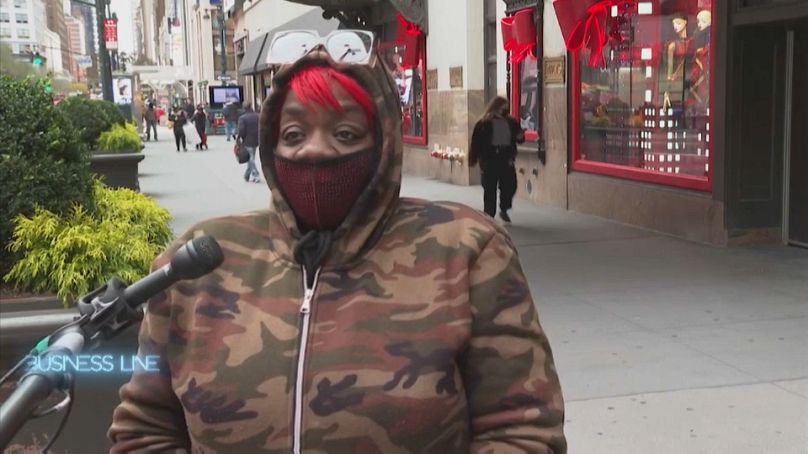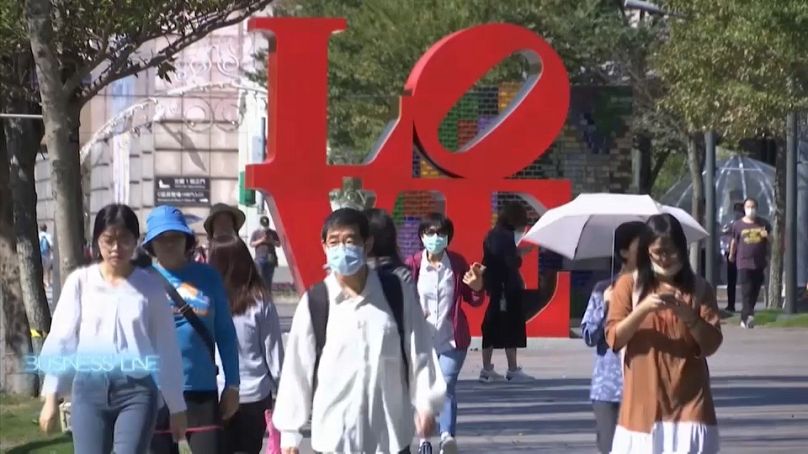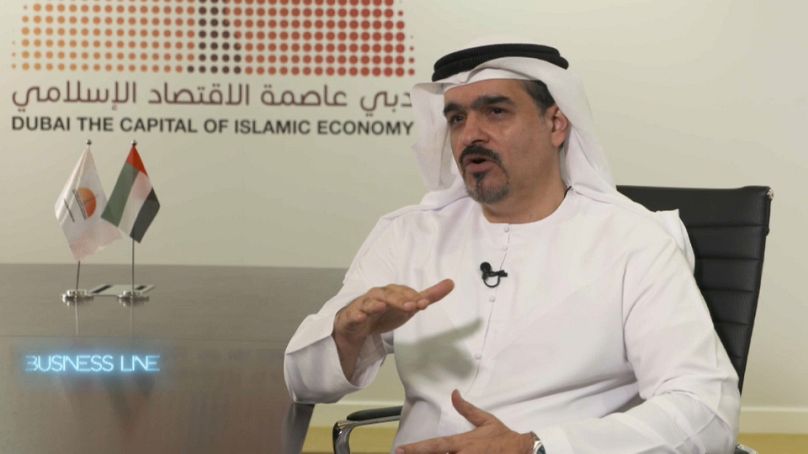In this week's Business Line, we look at how consumers in the U.S. may not get much in the way of promotions and discounts as demand is set to outsrip supply in the retail sector.
 ADVERTISEMENT
ADVERTISEMENT
 ADVERTISEMENT
ADVERTISEMENT
We also report on Taiwan's hope for an economic recovery in its final quarter of 2020, as its main export markets in Europe and the U.S. celebrate Christmas.
Also in this episode, brought to you from Dubai, we look at an annual report entitled: The State of the Global Islamic Economy, where there is cause for cautious optimism.
U.S. CONSUMER SPENDING
Retail sales in the U.S. grew by a sluggish 0.3% in October. A surge in nationwide coronavirus infections and the expiration of a 500-euro weekly boost to unemployment cheques has put the brakes on spending and contributed to the slowest retail sales growth in the country since the spring.
Debbie McIndoe is a resident in New York, and shared her concern:
"I definitely have a problem with shopping because the money is low, you know, everybody is in the house and nobody's getting jobs right now. The economy is not so hot. Hopefully it will change," she told us.
Money concerns combined with the very real possibility of another lockdown is completely transforming consumer habits this festive season, as Simeon Siegel, a senior retail analyst at BMO Capital Markets, explained:
"For the past 10 years, we kept hearing this mantra that people want to buy experiences, they don't want to buy things.
"Well, in this current norm, we're operating in, you can't have experiences outside the house. You don't travel. So things become your experiences.
"We've seen furniture, we've seen anything that improves your experience at home - at home fitness has gone through the roof," he said.
And we can expect retailers to be pretty scrooge-like with discounts, as demand remains broadly high relative to stock.
"I think this is the first holiday in a long time where demand is going to outstrip supply, and what that means is don't expect that many discounts.
"So from a consumer perspective, inventory is light. Deals are going to be light as well.
"From a stock perspective, I think we should all expect sales may disappoint, but margins and profitability are probably going to be better than we've seen in a while," Simeon Siegel said.
However, many Christmas shoppers will still brave the elements and visit shops.
"And I think what we will find is for the stores that offer a compelling product and for the stores that offer products that you cannot get online, people will brave the elements.
"And in this instance, the element is obviously the weather, but it's even more obviously the pandemic," he added.
**TAIWAN'S EXPORT ECONOMY **
Meanwhile on the other side of the world, Taiwan with its export-driven economy, is hoping that widespread lockdowns in the U.S. and Europe won't have a domino effect on its economy in Q4.
Taiwan has a population of almost 24 million, had less than 700 confirmed cases of COVID-19, and seven deaths as of the end of November.
However, the island has an export orientated economy highly dependent upon demand from the West.
That hasn’t hindered optimism for an economic rebound in the final quarter of 2020, as Venson Tsai, a financial analyst for Cathay Pacific Group, explained:
"Speaking of the situation right now, the most important thing is that the pandemic is still slowly gaining ground in Europe and America. Some cities are locked down in Europe, and their economic growth has slowed down a little. But this is not likely to recede, and America, as long as cities are not locked down, it will be blessed with the shopping peak season of Q4. In this case, Taiwan's year end exports can still reach a high. So if we look at Taiwan's economy, it is still on its path to recovery."
But many local businesses which depend on tourism and domestic sales have not had much reason to share this optimism, as shop owner, Chen, explained:
"Business fell around 50 per cent to 60 per cent. There are no tourists coming around, this seriously affects the business here. Our district has suffered greatly. Old shops in the neighbourhood have closed down."
The prevailing hope is that 2021 will bring with it a successful COVID-19 vaccine and a return to business as close to as usual as possible.
GLOBAL ISLAMIC ECONOMY
Consumer spending across the Islamic economy totalled over 1.85 trillion euros in 2019.
That’s according to a report on the state of the Global Islamic Economy.
Following its publication, I met with the CEO of the Dubai Islamic Economy development centre, Abdulla Mohammed Al Awar, to review the findings.
I stared by asking him to explain what the report is - and its key findings.
"We consider it a benchmark in terms of data on the Islamic economy sector. So what this report provides is actually a resource in terms of what are the key investments in the various sectors of the Islamic economy.
"What 2019 showed us is that the consumers spend almost 2.02 trillion U.S. dollars on the real Islamic economy sectors: halal food, pharmaceuticals, cosmetics, family-friendly tourism, media recreation. And in terms of Islamic finance assets, that stood at 2.88 trillion US dollars.
"We are glad to see that the UAE has fared well. It's within the top three in the global Islamic economy indicator. It leads in two of the sectors, media and recreation, as well as modest fashion," he added.
I then asked Abdulla Mohammed Al Awar about how important the UAE’s success was in the fintech sector.
"Quite, quite tremendous, to be honest with you. The fintech industry has really taken off now even more so, you know, with what has happened in 2020. But what has been apparent, I think the whole digitalisation of the banking sector and Islamic finance sector over the last years has proven that in order to be successful in this sector, you really need to embrace fintech," he replied.
He also talked about the surprise findings in the report.
"The halal food sector.... that makes sense because your producers today for food and your exporters are from Australia, from the U.S., South America, and some European countries are heavily ranked in terms of exports, halal food exports. It clearly signifies to me that this is a global ecosystem.
"So that indicator also provides an avenue for us to partner with other nations who place the Islamic economy as an important component in their strategies. You have Malaysia, you have the UAE, you know, you have Saudi Arabia, who have historically always been there as leading in the indicator. But Indonesia over the last two years, for example, rose very quickly as well in the rankings because the government there formulated certain strategies specifically addressing the Islamic economy sectors," he concluded.





